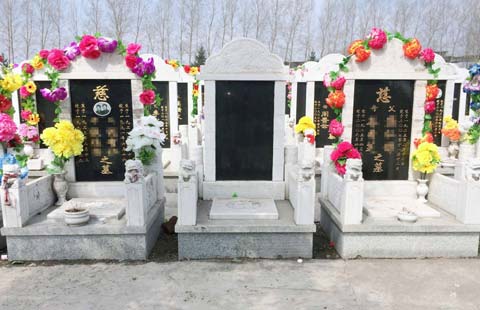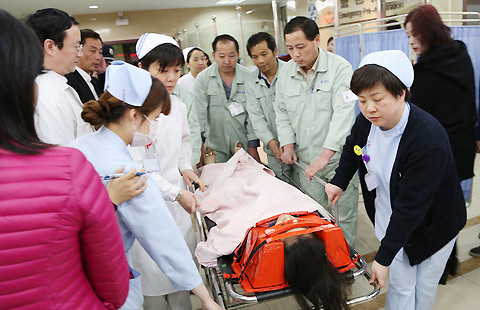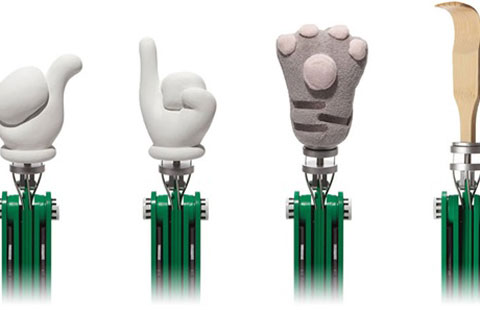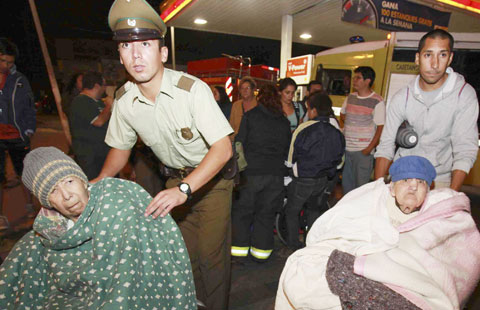Full text of China's policy paper on EU
( Xinhua ) Updated: 2014-04-02 17:21:19III. Cooperation in the Political Field
1. Deepening High-Level Exchanges and Political Dialogue
China will step up high-level exchanges and political dialogue with EU institutions and member states and further improve the structure of all-dimensional, multi-tiered and wide-ranging China-EU dialogue and cooperation. Both sides should give full play to the role of the China-EU Summit in providing political guidance to the China-EU relations, and make use of the China-EU High-Level Strategic Dialogue for communication and coordination over China-EU relations and major international and regional issues of mutual interest.
2. Strengthening Coordination and Cooperation in International Affairs
Strengthen consultation on international affairs, jointly work for political solutions to international and regional hotspot issues and uphold peace and stability.
Commit to jointly upholding the authority of the United Nations (UN), safeguard the victory of WWII and the postwar international order, support the UN in playing its lead role in upholding world peace, promoting common development and advancing international cooperation, support reforms of the UN and uphold international fairness and justice. Step up exchange in UN peacekeeping activities and promote cooperation between the two sides through personnel training and experience sharing.
Deepen exchange and cooperation in the framework of the Asia-Europe Meeting (ASEM), promote equality, mutual trust and practical cooperation between Asia and Europe, and enhance the role and influence of ASEM in upholding world peace and regional stability, promoting world economic recovery and sustainable development and working for solutions to global issues.
Step up macroeconomic policy coordination within the G20, commit to jointly working for a bigger role of the G20 in international economic and financial affairs as the premier forum for international economic cooperation. Encourage the G20 to build closer partnerships, commit to reforms of the international monetary and financial systems, promote trade and investment liberalization and facilitation, oppose protectionism and maintain and develop an open world economy.
Commit to jointly advancing international efforts to attain the Millennium Development Goals, eliminate poverty and achieve sustainable development with a view to realizing common development and prosperity.
Further strengthen policy dialogue and practical cooperation on climate change and promote positive progress in international cooperation on climate change based on the principle of equity, "common but differentiated responsibilities" and the respective capability of the two sides.
Step up counter-terrorism exchanges and cooperation based on the principle of mutual respect and equal-footed cooperation, oppose "double standards" on counter-terrorism and work for continued progress in international counter-terrorism cooperation.
Jointly promote international cooperation in escort missions, actively carry out cooperation in escort missions for World Food Program vessels, intelligence and personnel information exchanges between escort fleets of the two sides and joint counter-piracy exercises, and jointly safeguard peace in the Gulf of Aden and waters off the Somali coast.
Commit to jointly upholding the authority of the multilateral disarmament regime and support the adoption of a comprehensive and balanced program of work at the Conference on Disarmament at an early date to carry out substantive work as soon as possible. Strengthen international nuclear security. Work to prevent weaponization and arms race in outer space and safeguard its peace and security. Step up exchanges and cooperation in the field of non-proliferation and export control.
Strengthen cybersecurity dialogue and cooperation and promote the building of a peaceful, secure, open and cooperative cyberspace. Facilitate practical cooperation between China and the EU in fighting cyber-crimes, emergency response to cybersecurity incidents and cyber capacity building through platforms such as the China-EU Cyber Taskforce and work together for the formulation of a code of conduct in cyberspace within the UN framework.
3. Enhancing Cooperation and Exchange Between Legislative Bodies and Political Parties
The Chinese side welcomes and supports more exchanges and cooperation with EU legislative bodies at various levels and through multiple channels, such as regular exchange mechanisms and bilateral friendship groups, on the basis of mutual respect, greater mutual understanding, seeking common ground while shelving differences and developing cooperation.
The Communist Party of China is ready to further deepen exchanges with political parties of European countries, political groups of the European Parliament and regional organizations of political parties in Europe in the spirit of "going beyond ideological differences and pursuing mutual understanding and cooperation", with a view to establishing a multi-tiered and multi-channel mechanism for cooperation and cement the political foundation of China-EU relations.
4. Expanding Defense and Security Cooperation
Step up personnel exchanges at various levels in the defense and security field between China and the EU, expand the area and scope of practical cooperation between the two sides, improve the dialogue mechanism on security policies and create conditions for gradually elevating the level of the dialogue.
The EU should lift its arms embargo on China at an early date.
5. Abiding by the One-China Principle
The Taiwan question concerns China's core interests. The one-China principle is an important political foundation of China-EU relations. Properly handling the Taiwan question is essential for the long-term and steady development of China-EU relations. The Chinese side appreciates the commitment of the EU and its member states to the one-China principle and hopes that the EU will respect China's major concerns regarding the Taiwan question, oppose "Taiwan independence" in any form, support peaceful development of cross-Strait relations and China's peaceful reunification and handle Taiwan-related questions with caution.
- Exchanges between the EU and its member states and Taiwan should be strictly limited to nonofficial and people-to-people activities. Political figures of Taiwan should not be allowed to visit the EU or its member states under any pretext, and the EU and its member states should refrain from having any form of official exchanges or signing any official agreements with the Taiwan authorities.
- China asks the EU and its member states not to support Taiwan's accession to any international organization whose membership requires statehood.
- China asks the EU and its member states not to sell to Taiwan any weapons, or any equipment, materials or technologies that can be used for military purposes and not to carry out military exchanges or cooperation with Taiwan in any form.
6. Encouraging Hong Kong and Macao's Cooperation with the EU
The central government of China supports and encourages the governments of the Hong Kong Special Administrative Region (SAR) and the Macao SAR in developing mutually beneficial and friendly cooperation with the EU and its member states in accordance with the principle of "one country, two systems" and provisions of the Basic Laws in the two SARs.
7. Properly Handling Tibet-Related Issues
The Chinese side appreciates the position of the EU and its member states of recognizing Tibet as part of China's territory and not supporting "Tibet independence". The EU side should properly handle Tibet-related issues based on the principle of respecting China's sovereignty, independence and territorial integrity and non-interference in China's internal affairs, not allow leaders of the Dalai group to visit the EU or its member states under any capacity or pretext to engage in separatist activities, not arrange any form of contact with officials of the EU or its member states, and not provide any facilitation or support for anti-China separatist activities for "Tibet independence".
8. Continuing to Carry Out Human Rights Dialogue
The Chinese side is ready to continue human rights dialogue with the EU based on the principles of mutual respect and non-interference in internal affairs, and conduct human rights cooperation within the dialogue framework so as to increase mutual understanding and contribute to the development of China-EU relations and common progress in the human rights cause of China and the EU. The EU side should attach equal importance to all forms of human rights, including civil, political, economic, social and cultural rights and the right to development, view China's human rights situation in an objective and fair manner, stop using individual cases to interfere in China's judicial sovereignty and internal affairs, and to create a good atmosphere for human rights dialogue and cooperation between the two sides.
|
|
|
|
|
|
|
|
European Weekly
 We will not give up search, Li vows
We will not give up search, Li vows
International hunt for missing airliner continues after fruitless six-day search






















